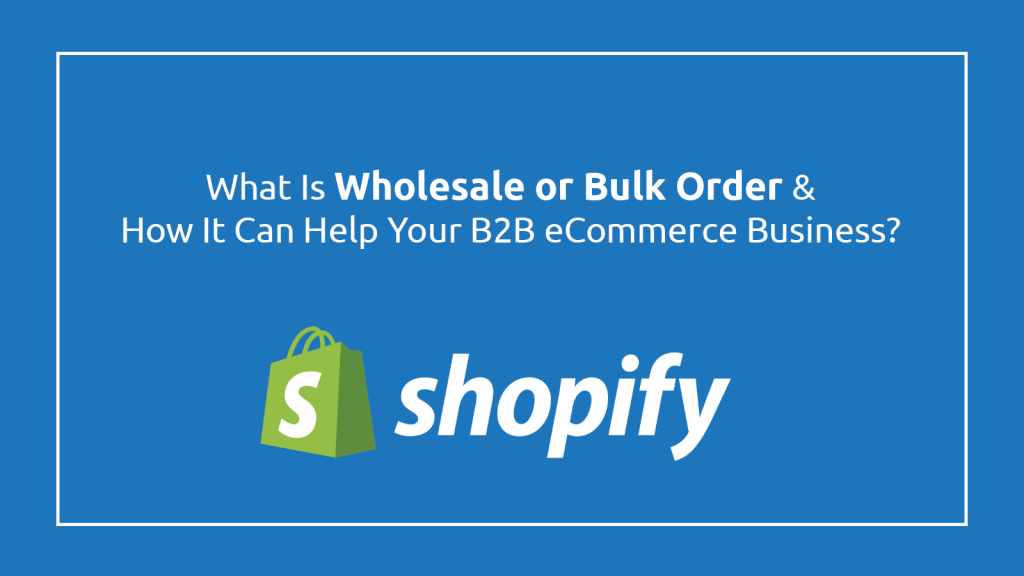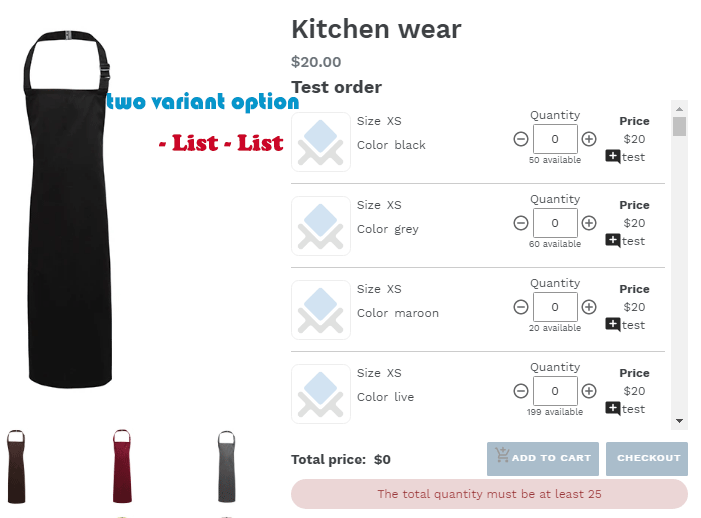
What Is Wholesale In A Business?
Wholesale is an activity where a manufacturer sells goods in bulk at a cheaper or discounted price to the retailers. Retailers or shopkeepers then repackage and resell the products in smaller quantities to their customers at higher prices.
Buying in large quantities enables the options for a wholesaler to provide a discount to the retailers as well. The prices retailers fix for the products in the next phase for their customers reveal the overall cost of the business. In supply chain management, wholesale is only a single step. The entire process includes –
- Raw materials suppliers
- Manufacturers that finalize the goods
- Wholesalers who buy products in bulks at a discount price from the manufacturers
- Retailers buy the products in large quantities from the wholesalers, repackage and sell in small amounts to the end-users or consumers.
Types of Wholesale
Some wholesalers work independently, and others work with more than one manufacturer sometimes. So it can be complicated to create a complete and clear guideline or categorize the wholesale business environment.
According to most supply chain experts, wholesalers fall into three different categories. As a startup business, you may not have to deal with all three types of wholesalers, but with time, when the business expands, you might have to.
Let’s get to know all three of them:
#1 Merchant Wholesaler:
It is the most common wholesale type amongst the three. Merchant wholesalers operate as individuals or businesses and work directly with suppliers or manufacturers. They do not manufacture the products themselves.
Merchant wholesalers purchase products from the suppliers in large quantities, import and safely store the products in the inventory. They have in-depth knowledge regarding the product and the market, which helps them deal with brick-and-mortar or online retailers. They know exactly when and to whom they should sell their products.
In the next phase, they sell the products in smaller quantities at a slightly higher price which ensures their target profit margin.
#2 Brokers, Agents, or Merchants Working on Commission
A broker or agent works on behalf of the manufacturers that struggle to sell their products. These people are mostly middlemen or intermediaries between wholesalers or direct retailers and manufacturers.
A broker, agent, or commission merchant negotiates a profitable deal between two parties. They get paid a commission or percentage of the sale by the supplier and sometimes from both parties.
#3 Manufacturers
The demand for some products is found high in the market. Instead of relying on wholesale businesses, these manufacturers are large enough to hire people as sales representatives or teams that actively represent them to their target market.
It means a manufacturer will approach wholesalers or retailers through their sales force and offer the products directly and make the deals. Deals are usually tailored depending on individual sales cases.
Where Wholesale Fits In The Supply Chain
Wholesale in a business is just one step in the entire supply chain management (SCM). The supply chain includes raw materials suppliers, manufacturers responsible for finished products, retailers, and end-users or consumers. Wholesaler works as a bridge between manufacturers and retailers to end-users.
Wholesalers purchase products from manufacturers and sell them to retailers. Retailers then sell the products to the consumers at a cost high enough to generate profits to cover the cost to continue business further.
Differences Between Bulk & Wholesale
Bulk quantities or wholesale are often used interchangeably in businesses, but they are not the same. They both have different definitions.
Bulk Quantity
Buying products in bulk or wholesale are often offered to anyone, no matter if they are retail or wholesale businesses. The most important thing is – buying products in large quantities in the process. For instance – one can buy 200 t-shirts at a time, even if it is for a one-time purchase.
Some people do not want to go to the pain of setting up a wholesale account. Instead, they prefer buying bulk quantities. But you must keep in mind that selling in bulks depends on the seller’s definition most of the time.
A seller can set up a product with a fixed minimum or maximum quantity and call it bulk. Read more about how you can apply minimum/maximum quantity for your Shopify store.
Also, bulk quantity depends on the types of products you want to purchase. For example – a seller can set up a minimum of 10 or a maximum of 100 units of a product one can buy from him. So, you should enquire about the bulk quantity fixed to do business with that particular seller and whether your needs qualify for the special pricing or not.
When buying in bulk, you might find a seller selling a case lot or lot at a set price. The case lot can be piled up with different products or a certain product in a variety of sizes and colors. For example, many t-shirts of different designs, colors, and sizes can be sold in a case lot. It is usually in an overstock situation or sometimes in closeout sales.
Wholesale
When it comes to wholesale pricing, you will need to set up a wholesale account with the seller to continue the business. After establishing a trade relationship with the seller or manufacturer, usually you purchase products significantly in large quantities from them.
In wholesale, your purchase quantity exceeds the purchased quantity of the regular bulk buyers. Make sure to set up the minimum or maximum purchase quantity in agreement with your supplier.
A wholesale setup with a manufacturer or supplier will require you to provide proof of the legitimacy of your business. You have to provide your VAT registration number or business license as well as proof of previous or ongoing trades with other businesses.
Benefits of Buying & Selling Bulk or wholesale In A Business
- Save Money: Buying products in bulk saves you money through discounts as wholesale buyers get from larger orders. Getting discounts enables the door to a high-profit margin. When you are buying from a wholesaler, you get the opportunity to get a good deal on one or multiple products at a time. Because a wholesaler deals with multiple suppliers or manufacturers for different products when you only need to deal with one wholesaler.
- Be an Expert: As a wholesaler or wholesale buyer, you know the ins and outs of your industry. You have in-depth knowledge regarding suppliers and mostly reliable suppliers, actual costs in the production process, and much more that makes you an expert in the field. Using the knowledge, you can entice your customers and prospects as well as earn their trust. Besides, you become a reliable source both for your customers and other businesses.
- Advantages of Small Orders: Wholesalers buy large quantities of products from the suppliers. But they sell products in fairly smaller quantities to retailers or small merchants. If you are a small business or startup, you can easily purchase comparatively small quantities of products from the wholesalers at a discount price.
- Fair Deals: Wholesalers deal with countless suppliers and the right ones to do long-term business. So, as a business, you do not have to deal with any bad suppliers anymore.
- Stay Ahead of Time: As a wholesaler, you have a true understanding of the current market and the ongoing trend. You deal with suppliers, retailers, and customers at the same time. Judging the ongoing trend or demand, you can bring a new product to the market easily and upsell it to your present customers. This way, you stay ahead of the competition in the industry and have a sustainable business in the long run.
How Can You Enable Wholesale or Bulk Order In Your Shopify eCommerce Store?
For instance – you own a B2B/wholesale store on the Shopify platform. Shopify offers countless applications on their platform that help merchants enable wholesale or bulk orders for their wholesale customers.
Amongst many, an application like MultiVariants – Bulk Order, helps you sell your products to your wholesale customers easily. Through a super simple installation process, you activate wholesale or bulk order options in your store. The best thing about MultiVariants is that it comes along with a free plan alongside standard and professional packages.
MultiVariants Bulk Order For Your B2B Wholesale Business

You sell products in wholesale or bulk or with multiple variants through your online store. MultiVariants makes the entire process easier for your customers. It offers:
- Easy installation process
- One-click add to cart for your product variants
- Option to turn your product default dropdown menu into variants list table with quantity box. Customers can select both product variants and quantity at the same time.
- Apply MultiVariants to specific or group of products
- Helpful features for your wholesale store
- Interval-based quantity / Incremental increases. Apply custom quantity increments or quantity intervals like 6, 50 or 100
- Variants fixed quantity (drop-down). Allow you to sell variants in bundle quantity and customers can choose the quantity from a drop-down list as you defined. Ex: 12, 24, 48, 100, 200
- Variants display in grid/matrix layout
- Variants custom text
- Limit minimum/maximum number of variants purchase
- Validate restriction while in the cart for restricted items
- Sticky action button
- Total order price
- Direct to checkout button
- MinMax Order Limits
- Options to select products’ min/max quantity along with variants
Subscription option that will help your customers subscribe to those products to get their order every week or month automatically.
Wrapping It Up
After going through an in-depth discussion, now you know what wholesale or bulk order is, how it can be a great way to find deals in your favor, and there’s a big resale market for it as well. With the right supplier as a wholesaler or a retailer with the right wholesaler, you can smoothly grow and run your business and hit your target profit margin.
